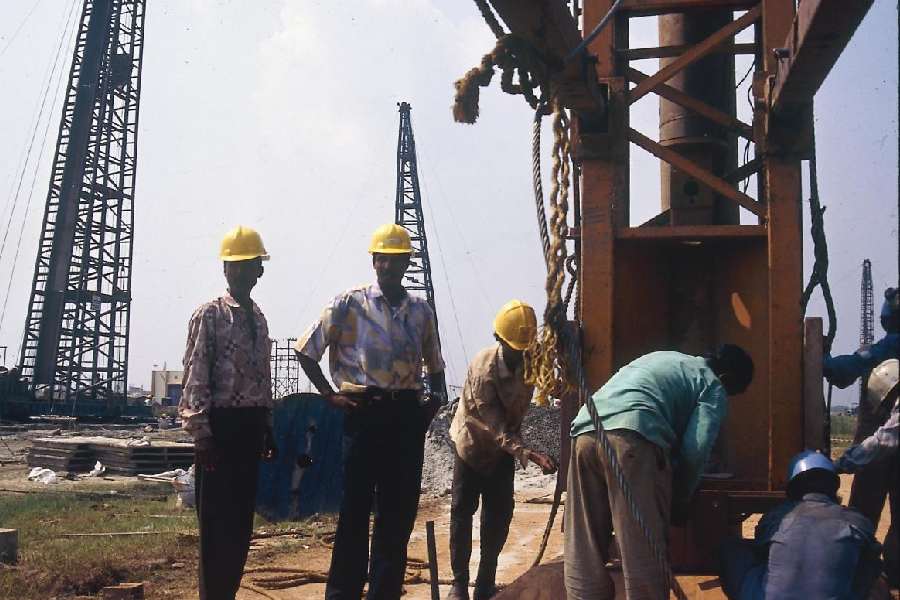The Chatterjee Group (TCG) has won an arbitration award against the Bengal government in a commercial dispute over the failure to pay financial incentives worth Rs 3,285 crore to Haldia Petrochemicals Ltd (HPL).
An arbitral panel comprising three retired Supreme Court judges, including two former Chief Justices of India, ruled in favour of the claimant Essex — a TCG group company — while rejecting the objections raised by the state government.
The award, pronounced in September, marks the first round of another legal battle that TCG has been waging to establish its commercial rights over HPL, the crown jewel of the group.
Sources in the Bengal government said the state has filed an appeal against the verdict – which suggests that the legal dispute will drag on for a while.
The state government has been locked in legal disputes with several companies over the failure to pay financial incentives that were offered to persuade them to invest in Bengal.
The battle with HPL is slightly different since it flows from a private commercial agreement between the parties and does not stem from any particular incentive scheme that Bengal puts in place from time to time.
Given the poor health of the state exchequer, accentuated by the non-disbursal of central funds, the Mamata Banerjee government has prioritised pro-people policy expenditure over the payment of incentives to industries.
The HPL case
Haldia Petrochemicals had been locked in an ownership dispute for several years. The state government and the New York-based TCG – the promoters — eventually settled the dispute about a decade ago. Under the terms of the agreement, TCG agreed to acquire 52 crore shares from West Bengal Industrial Development Corporation at Rs 25.10 apiece in two tranches, putting the private company on the driver’s seat.
A tripartite share purchase agreement was signed among HPL, TCG and the Bengal government on September 11, 2014 to this effect.
The agreement also stipulated that HPL would be allowed to avail 75 per cent of its unutilised incentives amounting to Rs 3,285 crore over a period of 19 years starting from January 1, 2016.
At around this time, the Centre was pushing for the introduction of the Goods and Services Tax (GST) regime. So, the HPL agreement carried a proviso which said that if the GST regime was introduced, the incentives that would be limited to state GST levied on the sale of HPL production in the state.
Under the GST regime, the levy is broken into two components: central and state GST.
TCG became the majority shareholder and gained management control after it acquired the first tranche of HPL shares for Rs 635 crore in December 2015.
Aided with an up-cycle in the petrochem business, HPL made a remarkable turnaround under TCG, posting record profits and broke free from a troubled past with its very existence blighted by the threats of financial sickness.
During the 18-month period between January 1, 2016 and June 30, 2017, HPL used to collect value added tax (VAT) from the sale of its products but did not deposit the levy with the state, adjusting the unutilised incentives as per the share purchase agreement (SPA).
The company collected a little over Rs 300 crore during that period. Post implementation of GST from July 1, 2017, there was no provision to retain the tax amount which was collected by the federal authorities.
The state’s share of GST is distributed later from the centralized pool. Thereafter, HPL continued to collect the GST, which replaced VAT, and deposited the levy in the hope that the SGST component would be reimbursed later.
However, it did not receive the funds from the cash-strapped state government which was grappling with its own priorities and compulsions. After issuing a demand notice and following it up with a dispute notice, during 2019-20, Essex invoked the arbitration clause as per the terms of SPA and appointed an arbitrator in March 2020.
Essex, a promoter company of HPL, successfully made out the case that it was the onus of the state government to return the state’s share (SGST) collected and deposited by HPL. The company’s accumulated recoverable balance six years after the introduction of the GST regime stood at Rs 1,539.5 crore as on June 30, 2023.
The award
The high-powered arbitral tribunal, comprising two former CJIs, Jagdish Singh Khehar and R.M. Lodha, and former SC Justice A.K. Sikri, held that HPL was entitled to the financial incentives that had accrued since July 1, 2017. The amount recoverable up to March 31, 2022 was Rs 1,084.7 crore.
The tribunal held HPL will continue to enjoy the tax benefit till it receives the entire Rs 3,285 crore or a lesser amount when the 19-year period ends, whichever comes first. It is also held entitled to a 6 per cent interest on the unpaid amount and the cost of arbitral proceedings.
The Telegraph reached out to both HPL and the state government for comments but did not receive any response from either.










